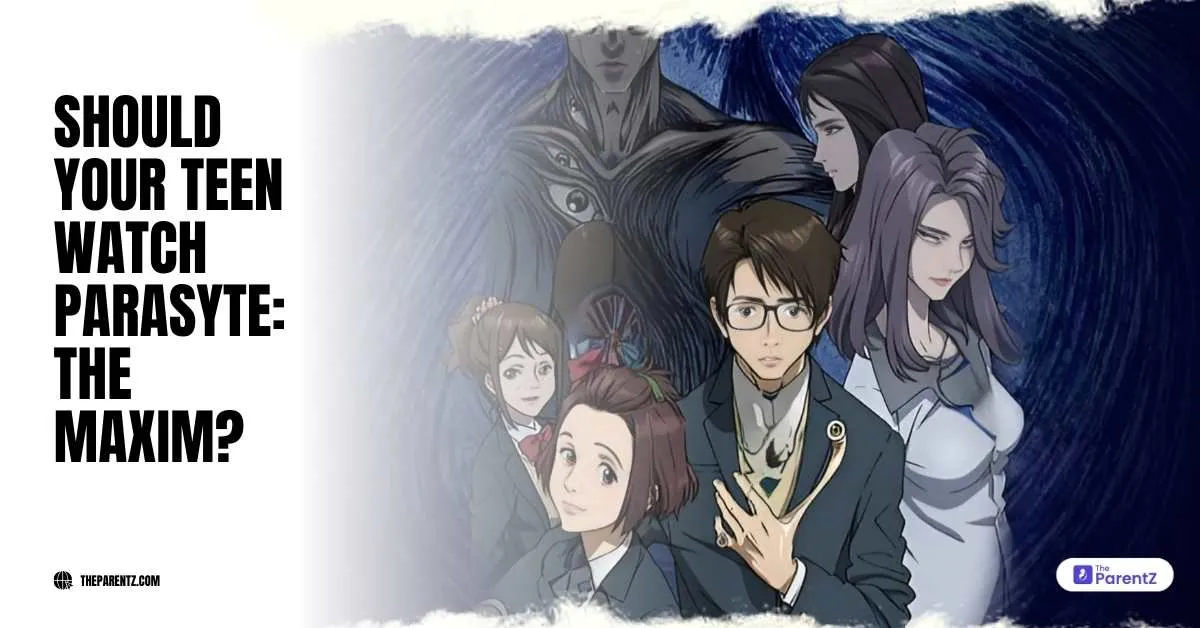A Parental Guide to Body Horror, Identity, and the Morality of Survival
Introduction
What if a parasite took over your right hand—and tried to consume the rest of your body? That’s the unsettling premise behind Parasyte: The Maxim, a sci-fi horror anime that’s equal parts action and existential crisis.
Though it features thrilling battles and sharp visuals, Parasyte isn’t just about fighting monsters. It’s about what makes someone human. It’s about fear, loss, and the blurred lines between survival and cruelty.
But with its graphic violence and disturbing imagery, it’s also not a show for everyone—especially not every teen.
Overview
The series follows 17-year-old Shinichi Izumi, an ordinary high school student who becomes infected by a parasitic alien lifeform. Unlike most victims, the parasite fails to take over Shinichi’s brain and instead merges with his right hand, forming a symbiotic relationship.
This new entity—nicknamed “Migi”—is logical, emotionless, and terrifyingly efficient. As Shinichi tries to hide this change from the world, he discovers that other parasites have fully taken over human hosts. These creatures disguise themselves as ordinary people, but they’re capable of horrific violence—and they see humans as food.
As Shinichi is forced to confront and fight these beings, he also begins to change—emotionally and physically—leaving him caught between two species and two identities.
Themes
Graphic Violence and Gore
This is one of the most visually intense anime in the sci-fi genre. Parasytes morph their heads into blades, tendrils, and mouths filled with teeth. People are sliced in half, devoured, or torn apart—often in public, without warning.
While the gore serves the story, it’s graphic and frequent. And because it often affects ordinary people in everyday settings (classrooms, parks, trains), it hits harder.
Identity and Humanity
As Shinichi evolves, he begins to question what separates him from the parasites. Does empathy make someone human? Or is it just biology? This theme deepens when he begins to lose emotional responses, even after witnessing death.
It’s a powerful lens on growing up, grief, and emotional desensitization—but one that might confuse or distress teens still forming their emotional vocabulary.
Morality and Survival
The show doesn't offer simple answers. It questions whether killing to survive is wrong, and whether mercy has a place in nature. Migi, in particular, represents cold logic—forcing Shinichi to constantly debate morality, loyalty, and his place in a violent world.
Age Preference
Recommended for: 17+
Parasyte isn’t just gory—it’s psychologically demanding. The emotional toll of watching a young person wrestle with loss, identity shifts, and ethical dilemmas makes this more than just horror. Younger viewers may struggle with its complexity and emotional weight.
Who Should Not Watch
- Viewers under 16 or new to horror
- Teens sensitive to themes of death or grief
- Anyone disturbed by body horror or realistic violence
- Viewers expecting a light sci-fi action show
Even though the art style is clean and modern, the tone is grim, and the visuals can be traumatic for unprepared viewers.
Lessons From It
At its core, Parasyte asks a timeless question: What does it mean to be human? Shinichi’s evolution is both tragic and fascinating. As he loses certain emotions and gains others, he’s forced to find his moral compass from scratch.
It also teaches the value of empathy—even when it's inconvenient or dangerous. Migi, who begins as a cold survivalist, slowly learns the importance of human connection. The show doesn’t offer easy moral lessons, but it creates room for deep conversations about survival, sacrifice, and what we owe each other in a world filled with fear.
Conclusion
Parasyte: The Maxim is not a monster-of-the-week anime. It’s an intense, disturbing journey into the heart of fear, identity, and moral compromise. It’s beautifully animated, smartly written, and emotionally grounded—but it’s also extremely violent and psychologically intense.
If your teen wants to watch it, check in first. Are they drawn to the sci-fi? The philosophy? The action? Watch an episode with them, and be ready to talk—about what it shows, how it feels, and what it means.
Because Parasyte might be about alien invaders, but its most haunting moments are the ones that feel closest to home.





Be the first one to comment on this story.